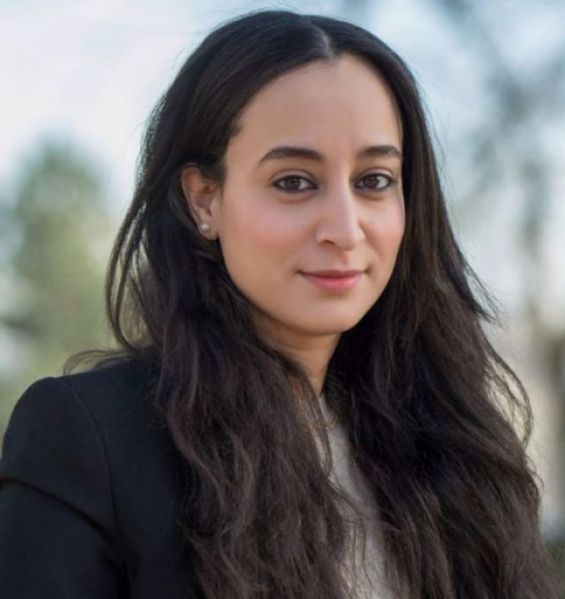This is not her first initiative as a few months ago she had been engaged in the Zerotract campaign in France to «ban traditional (electoral) flyers». Today, Bouchra Sirsalane, a French-Moroccan born in Montereau-Fault-Yonne to Moroccan parents from the Doukkala region, is mobilized against face masks pollution.
A municipal councilor in Puteaux since 2014, she worked in the social sector for more than 10 years. Having grown up between Paris and Montereau, she interrupted her studies after her scientific baccalaureate, then after a year into studying mathematics at university, she went back to social work.
She then put her career on hold to raise her two boys. Full of determination, she subsequently resumed her studies in education science before earning a post-graduate diploma (DESU) in coaching practices. Today, she is a trainer, coach and heading her own company.
Also involved in politics, with the Democratic movement since 2013, Bouchra Sirsalane has been interested in issues of social inequality, education and housing, especially among people with an immigrant background.
«It is true that these issues trigger me. Having worked in the field of social action and education science, I really wanted to propose innovations in pedagogy and little by little, I became interested in ecology and well-being».
Waste and face masks
For the French-Moroccan and administrator of the communal social action center (CCAS) of the City of Puteaux, this well-being «leads to all these ecological, social, living together and intercultural issues». She believes, moreover, that «intercultural dialogue in France is very little developed, which creates tensions». «In my opinion, identity crises also come from this lack of intercultural dialogue», the elected official adds.
 Ph. Le Figaro
Ph. Le Figaro
She is also interested in plastic pollution. «Last year, with the pandemic and the decision to make it compulsory to wear a mask, my mother was in Morocco and complained of an allergic reaction due to wearing a mask. I then asked myself about their composition and I started to research it», the French-Moroccan explained. This is how she discovered that some masks were «composed of plasticine and petroleum derivatives». «When left in nature, it takes 400 years to degrade. It is an additional plastic pollution», she denounced.
«We looked at the number of masks used per day and how much waste it generates to discover this figure: 400 tonnes of waste per day which need 400 years to decompose, knowing that in 2020, masks have been found in the oceans».
Raising awareness in France and possibly in Morocco
The coach and trainer recalls that «France has ordered 2 billion masks, without thinking about what we were going to do with these products». «This will become a major pollution in view of our consumption in the face of the pandemic», she regretted.
Also responsible for Mobilization and action within the association Democrats for the Planet, an NGO bringing together elected officials of the said party, she decided to carry out several actions, in collaboration with NGO Tired Earth. «The first was to educate the general public about this pollution and we're starting to get a lot of feedback; citizens become aware of the problem». However, she believes that «this is not enough» and that more needs to be done.

Thus, from March 1, the two NGOs will raise awareness about the collection of this special waste. «We will ask elected officials to set up collection points, while the next step will be recycling and encouraging the installation of collection points in cities, public spaces and schools», she told Yabiladi.
Bouchra Sirsalane also declared that she hopes this awareness campaign will eventually reach Morocco, her country of origin. «We see here that the country has managed the health crisis well and it would be interesting for a country to start to stand out in the region and be able to launch an awareness campaign around masks», she explained.
«Morocco has a lot to gain in terms of image because international media are already echoing the fact that it is the first country in Africa in terms of vaccination. It can also create jobs for young people who have dreams of creating startups in the recycling field».
Recalling that the Mohammed VI Foundation for the Environment had already launched an information campaign on plastic «Clean Beaches # b7arblaplastic», the French-Moroccan insists on the need of «encouraging sorting channels» in Morocco, opening up the way to the recycling of these products harmful to the environment.





 chargement...
chargement...













